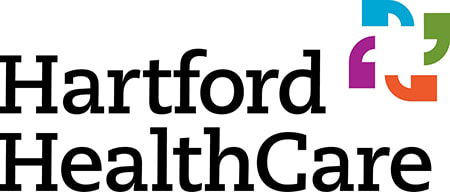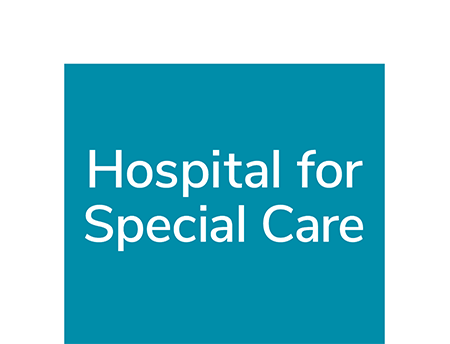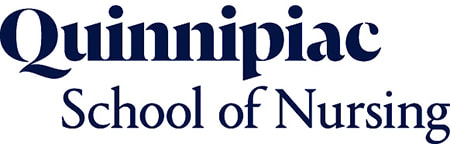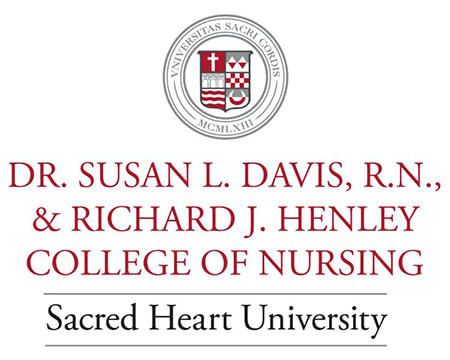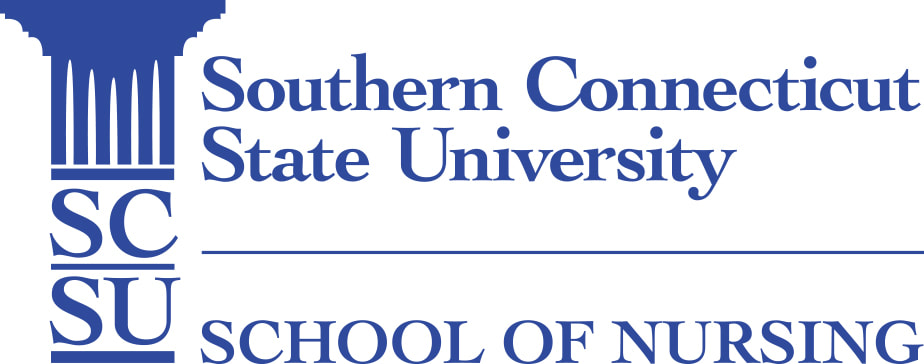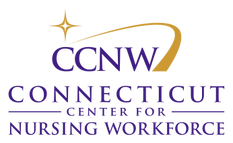|
Have you thought about returning to school but don’t know how to start the process? Did you know that your organization may provide financial support advance your education? CCNW offers support and resources to explore opportunities to advance your education that aligns with your personal and professional goals.
0 Comments
FOR IMMEDIATE RELEASE
Contacts: Sherylyn Watson, Chair of the Board, CT Center for Nursing Workforce, Inc., 203-727-2477 Marcia B. Proto, Executive Director, 203-494-1121, [email protected] Tina Loarte-Rodriguez, 203-691-5013, [email protected] The Connecticut Center for Nursing Workforce, Inc. Announces Leadership Transition June 3, 2024- Wallingford, CT--- Sherylyn Watson, Chair of the Board of Directors for The Connecticut Center for Nursing Workforce, Inc. (CCNW) has announced that after eighteen years, Marcia B. Proto, CCNW Executive Director will transition from the leadership role on June 30, 2024, and Tina Loarte-Rodriguez will become the organization’s Executive Director. Marcia B. Proto was named Executive Director in 2004 (taking 2 years from 2007- 2009 to work with the National League for Nursing) and has led the organization’s work on a statewide and national scale for almost two decades. Her passion for educating nursing and non-nursing stakeholders about the positive impact of highly skilled nurses on improving the health of Connecticut residents, and the importance of maintaining and expanding the capacity of our schools of nursing to meet emerging employment needs across the continuum of care is unparalleled. Proto has built a vibrant state and national network encompassing the Healthcare Trade Associations, Workforce Development Boards, CT Government Departments- Public Health, Labor, Office of Healthcare Strategy, and State Board of Examiners for Nursing to support the identification of statewide strategies to develop workforce planning initiatives to build a robust and sustainable nursing workforce. She will continue to operate her healthcare consulting company, Marcia Proto Consulting, LLC. Dr. Tina Loarte-Rodriguez has over eighteen years of nursing experience in various healthcare settings and specialties. A first-generation college graduate, she is a graduate of Cornell University, the University of Connecticut, and Quinnipiac University. A perpetual learner passionate about innovation, health equity, and advocacy, she completed the American Nurses Association’s Innovation Accelerator Program in 2023 and is a 2023-2024 Fellow of the American Nurses Advocacy Institute. Tina knows nurses are highly skilled professionals and belong everywhere decisions about people are made. Dr. Loarte-Rodriguez is a 2021 Hartford Business Journal Healthcare Hero Award winner. She also led her nursing team to win the 2021 Connecticut Nurses Association Excellence in Team Award. She is active with the National Association of Hispanic Nurses (NAHN), the Connecticut Nurses Association (CNA), and DNPs of Color (DOCs). Tina has published several works, including her recent book, Latinas In Nursing, the first anthology celebrating the journeys of fifteen Latina nurses across the United States. Tina works hard, and she plays even harder. She loves dancing, traveling, and reading. An Afro-Latina Boricua (Puerto Rican), born and raised in the Bronx, NY. Join the National Forum of State Nursing Workforce Centers 2024 Annual Conference “Accelerating Nursing Workforce Solutions: Innovative Programs and Data to Transform Policy”. The conference which will be held on June 17-19, 2024 in San Diego will bring together nursing, workforce, and leaders from across the country to learn, share and network.
This national conference will focus on these key issues that affect the nursing workforce shortage:
Visit The Connecticut Center for Nursing Workforce at our Exhibitor Booth Also, Join Susan Deane on two sessions 5:00 PM – 5:30 PM Ready, Set, Go . . . Return to the Nursing Workforce Using a Virtual Online RN Refresher Course at 6:00 PM – 8:00 PM An Onboarding Model for Novice Nurse Faculty Using an Online Full-Time Faculty Preparation Course Speaker: Susan Deane
Interview with Marcia Proto on "Melissa in the Morning". Hear Marcia share with Melissa concerning nursing workforce in CT, what changes have been implemented, what other improvements can be made to recruit and retain nurses.
This award acknowledges the work done over the past year of a nurse educator in Academia or Practice who has amplified the critical importance of the CCNW mission which is to foster collaborations to ensure a highly educated, diverse, and sustainable nursing workforce to support the healthcare needs of Connecticut residents. Selection Criteria: A nursing education professional who has:
Dr. Krol was unable to attend the Summit as she was in Chile with her nursing students. Dr. Krol was nominated by her colleague at Southern Connecticut State University, Michele Vancour, who accepted the award on her behalf. The CCNW Nurse Workforce Development Award. Presented to Dr. Maria Krol
Dr. Krol is Chair and Associate Professor of Southern CT State University’s School of Nursing. Her innovative leadership resulted in many positive outcomes for CT’s nursing workforce. Her recent initiatives include: implementing a new BSN pathway for students, A second cohort of Accelerated/second Degree BSN students, and a Summer Nursing Symposia for high school students. The latter initiative will create a pipeline into healthcare careers and provide CNA training leading to state certification. These initiatives offer diversity-enhancing opportunities via a student mentorship program, and moreover minimize barriers to progression to post-secondary education. Her efforts are making a difference for all. The Jane E. Murdock "Life-Long" Learning Award was established in 2011, and acknowledges the work done over the past year by a nurse educator in Academia or Practice who has demonstrated knowledge as an Exemplar Nurse Educator who uses best-practices in teaching and learning, incorporated an evidence-based approach to teaching, earned the respect of students and colleagues, and is certified as a Nurse Educator or Professional Development Educator. Selection Criteria: A nursing education professional who has:
The Jane E. Murdock “Life-Long” Learning Award. Presented to Dr. Cheryl Ann Green at the CCNW Summit on April 10th.
Dr. Green is an Off-Shift Nurse Administrative Manager at the Yale-New Haven Health Bridgeport Hospital Milford Campus & Nurse Educator, and a Doctor of Nursing Chair and Committee Member within the Graduate School at Abilene Christian University. Dr. Green has been a registered nurse for over 34 years and a licensed clinical social worker for over 30 years. Dr. Green has designed innovative courses for both graduate and undergraduate nursing programs throughout her tenure as a Nurse Faculty, and specifically within the Southern Connecticut State University undergraduate program- A Healthcare Narrative and Critical Care course; and at Abilene Christian University graduate program, Healthcare Policy, and Genetics in Nursing Practice courses. Her most recent work, which was just published last month, includes her research conducted in her role as Off-Shift Administrative Manager and Nurse Educator at Yale New Haven Health. This work centers around the critical importance of succession planning for nurse leaders. As the nursing profession is continually evolving with new healthcare innovations and approaches in the care of complex clients; there is a need to engage in succession plans of nursing leadership. Dr. Green collaborated with her colleagues on the use of competency-based curriculums to educate a new generation of nursing leaders to help with the seamless transition to prepare competent and effective nurses at all levels. This Excellence Award was established in 2022, and is selected by the CCNW Board Chair and acknowledges the work done over the past year or years to amplify the critical importance of the CCNW mission which is to foster collaborations to ensure a highly educated, diverse, and sustainable nursing workforce to support the healthcare needs of Connecticut residents. Selection Criteria: Awarded to a volunteer, group of volunteers, or an organization whose active engagement, dedication, expertise, and commitment has contributed significantly to supporting the development of the nursing workforce and amplifying the mission and goals of the organization in Connecticut and across the region. The CCNW Annual Excellence Award. Presented to Dr. Marie M. Spivey
Marie Spivey is a Principal/Consultant with the System for Education, Equity & Transition, LLC (SEET Consultants, LLC). She is a Registered Nurse who holds EdD and MPA degrees, both from the University of Hartford, and a BS Degree in Human Service from Southern New Hampshire University. She is a recognized a healthcare & nursing leader who has dedicated her career to developing and building a diverse, well-educated, compassionate, and robust nursing workforce in CT! Currently, Dr. Spivey utilizes her knowledge and skills surrounding community health and the value of diversity, equity, and inclusion education into her role as an active Board member of several organizations – among them are:
She serves as a Culturally & Linguistically Appropriate Standards consultant for the CT Department of Children and Families, the Carelon Behavioral Health CT, a 15-member non-profit organizational cohort supported by the YWCA of New Britain and the New Britain Community Foundation, and other community-based, academic, and health organizations in and outside of the CT region. During Dr. Spivey’s tenure at Hartford Hospital, she was responsible for the organization’s expanded participation into the Greater Hartford communities through its Community Benefit Program, and its community mobile van Health Star. She was asked to serve as the hospital’s Loaned Executive to become the CEO of the Learning Corridor – and as such launched Hartford’s first 16-acre campus of four magnet schools and a Performing Arts Theater, bringing with her a fleet of security guards and her administrative support from the hospital. Dr. Spivey chaired Connecticut’s first Commission on Health Equity signed by Governor Jodi Rell to examine the state’s complex health system and acquire key findings intended to deliver a health care equity agenda for all. She also became the Co-Chair of the New England Regional Health Equity Council (RHEC) which was the first of ten such Councils across the country created by the U.S Department of Health and Human Services, Office of Minority Health. In 2019, Marie retired from the Connecticut Hospital Association (CHA) where she had served for several years as Vice President of Health Equity working with the state’s (then) 28 hospitals to enhance their efforts to form Diversity Collaborative Teams to better address health equity policies and opportunities to better serve their constituents. Integrating Population Health Competencies into Practice, Academia, and the Nursing Workforce4/3/2024 On-Demand | Aired October 26, 2023
Hosted by the Faculty Leadership Network Learn more about population health initiatives deployed across the state of Connecticut from 2021-2023 in the areas of practice, academia, and the nursing workforce. Discover programs and strategies that can help to accelerate local efforts to meet population health needs. Objectives:
Speakers
Annual Conference Integrating Artificial Intelligence with Behavioral Health: Best Practices for You and Your Client Thursday, April 25, 2024 | 7:30 am – 1:30 pm Masonicare at Ashlar Village, 74 Cheshire Road, Wallingford, CT 06492 7:00 – 7:30 Exhibitor set-up 7:30 – 8:00 Registration and Executive Continental Breakfast Buffet (included) 7:45 – 8:00 Welcome, David Francis, MS, LADC, LPC, CEAP, CT EAPA President, UCONN Health Employee Assistance Program 8:00 – 9:00 KEYNOTE: Suicide Risk, Quality of Care and Artificial Intelligence, Seth Feuerstein, MD, JD, Lecturer in Psychiatry, Faculty Advisor Innovation & Entrepreneurship; Assistant Clinical Professor of Psychiatry, Yale University Center for Biomedical & Interventional Technology 9:00 - 10:00 Harnessing AI within Digital Mental Health Platforms, Nikole Benders-Hadi, MD, Chief Medical Officer / Talkspace 10:00 – 10:30 Break with Exhibitors 10:30 – 11:30 Revolutionizing Mental Health: The Integration of AI in Substance Use Treatment, Michael Brunk, Chief Marketing Officer at Paramount Wellness Retreat, Haddam, CT 11:30 – 12:15 Business Hot Lunch Buffet (included) 12:15 – 1:15 Using AI to Enhance Treatment Planning, Andrea Becker-Abbott, MS, LADC, EAP Professional, Andrea and Associates, LLC, Farmington, CT 1:15 – 1:30 Closing Remarks, David Francis, MS, LADC, LPC, CEAP, CT Chapter of EAPA President, UCONN Health Employee Assistance Program 4 PDH’s, SWCEU’s, CCB’s, LAP-C, NAADAC applied for
The Industry’s Multi-Stakeholder Event that Delivers a 360-Degree Perspective to Drive Healthcare Forward
Please join us May 29-31 in DC for #thINc360. We're excited to be a part of the industry’s multi-stakeholder event that delivers a 360-degree perspective to drive healthcare forward! Save 50% when you register using our exclusive promo code for CCNW. Event Title: thINc360 – The Healthcare Innovation Congress Event Dates: Wednesday, May 29 – Friday, May 31, 2024 Event Hotel: The Westin Washington, DC Downtown Event Location: Washington, DC Event URL: https://thinc360.com/2024event/ thINc360 AAAG: https://thinc360.com/wp-content/uploads/2023/07/HT24100_AAG.pdf thINc360 Online Agenda: https://thinc360.com/2024event/2024-agenda/ thINc360 Speakers: https://thinc360.com/2024event/2024-speakers/ 50% Discount for CCNW Use Promo Code: CTCNW for 50% off the current registration rates Critical Areas of Concern Shared by Senior level Nursing Students Related to the Transition from Student Nurse to Practicing Nurse
On November 7, 2023, The Connecticut Center for Nursing Workforce, Inc. (CCNW) held its 43rd Annual RN Student Day that attracted over 830 senior level nursing students from Connecticut Schools and Programs of Nursing. During a morning session, Marcia B. Proto, M.ED, CAS, Executive Director of the CCNW, asked each of the (85) tables to select a Table Captain for an activity. The Table Captain was to engage their peers in open dialogue to identify and capture their thoughts and concerns related to the transition from student nurse to practicing nurse. The student feedback which represents 28% of the current senior level nursing students was a true “eye-opener”. They identified five key areas that students want, and need addressed by both academe and practice related to pre-and post-hire concerns which would help foster a seamless transition to practice for the graduating nursing student and promote retention of the new nurse within the first year. As a result, CCNW will be developing and delivering programming to address these five (5) keys areas to support the leadership of Connecticut’s nursing schools and practice settings via interactive webinars that will be delivered via our professional development “Lunch and Learn Webinar Series” beginning in early 2024. CCNW categorized the student responses and feedback into the following five key areas: Marcia Proto, Executive Director of the CCNW, represents Connecticut in New Orleans at the National FORUM of State Nursing Workforce Center’s meeting of Executive Directors from across the country.
For more information related to nursing workforce, practice and education initiatives happening in Connecticut, visit: www.CTCenterForNursingWorkforce.com An Event Hosted By the Education Working Group at Quinnipiac University, 275 Mount Carmel Avenue, Hamden, Connecticut, The Center for Communications and Engineering, Room 101, Mount Carmel Auditorium.
In Person or via Web-Ex Please join us for a series of presentations and discussions from the Education Working Group about the responsibilities of colleges and universities in Connecticut to protect the civil rights of their students with disabilities. Topics addressed will include the Americans with Disabilities Act, Section 504 of the Rehabilitation Act, and the Fair Housing Act, as well as working with students with mental health and behavioral health disabilities, reasonable accommodation policies, and emotional support and service animal policies. This event is designed for senior leadership of colleges and universities as well as the staff of each school’s student accessibility services or disability services office. To attend in-person, please RSVP by e-mailing [email protected]. To attend by Web-Ex, please register here. Speakers Will Include:
About The Education Working Group: The Education Working Group is organized by the United States Attorney’s Office for the District of Connecticut and is composed of representatives from state and federal agencies, nonprofits, and the community at large. The group meets regularly to discuss the civil rights issues that arise in education and child-care settings. This year’s focus topic is children with Autism Spectrum Disorder, but the group works to help children and parents with all types of disabilities. If you require an accommodation, please contact [email protected]. EXECUTIVE DIRECTOR for THE CONNECTICUT CENTER FOR NURSING WORKFORCE, INC.
Executive Director Position: The Connecticut Center for Nursing Workforce, Inc, (CCNW) seeks a new Executive Director with responsibility for overseeing the administration, operations, programs, and communications of the CCNW. Other key responsibilities include fundraising, public relations, and community outreach. The Executive Director reports directly to the Board of Directors through the Board Chair. The ideal candidate will have strong administrative skills, excellent oral and written communication ability, strong attention to detail, the ability to manage multiple initiatives concurrently, a customer service orientation and a passion for CCNW’s strategic initiatives to build a robust nursing workforce for the 21st century, support the professional development of individual nurses and create the infrastructure needed to implement and sustain CCNW strategies. This position is full-time at 40 hours per week with a salary commensurate with experience. The Executive Director will be expected to attend all meetings of the Board of Directors and its Committees. Working on some evenings and weekends will be required. Key Responsibilities:
Required Skills and Qualifications:
Terms of the Executive Director Position:
To Apply: Qualified candidates should submit a cover letter, current resume, completed Application Form, Qualification Statement and contact information for 2 professional references. Applications are due no later than the close of business (5:00 p.m. EST) on Friday, February 16, 2024. Applications received after this date will not be considered. Graphic Highlighting Respondents to the 2019 Statewide Healthcare Workforce DEMAND Survey
To view full report, visit: http://www.ct.sentinelnetwork.org
For more information, please contact: Marcia B. Proto, M.Ed, CAS, Executive Director The Connecticut Center for Nursing Workforce, Inc. [email protected] 203-494-1121
Raquel Ramos of Yale University School of Nursing is One of Five Awardees for Health Equity Work A nurse researcher in Connecticut who leverages eHealth and community engagement to enhance cardiovascular health equity in gay and bisexual men with HIV is one of five recipients of the inaugural Equity-Minded Nurse Awards from the AARP Center for Health Equity Through NursingSM and the Future of Nursing: Campaign for Action, an initiative of AARP Foundation, AARP and the Robert Wood Johnson Foundation that is building a healthier America through nursing. The awards are part of the Campaign’s work to implement the goals of the National Academy of Medicine report, the Future of Nursing 2020-2030: Charting a Path to Achieve Health Equity, which explores nursing’s pivotal role in advancing health equity. The awards are given in five categories (Educator, Researcher, Leader, Practice, Rising Star) and each is generously co-sponsored by a national nursing organization. The awardees receive a $1,000 prize each and paid travel to and recognition at the AARP Health Equity and Nursing Summit: Turning Commitments into Action, in Washington, DC. S. Raquel Ramos, PhD, MSN, MBA, Yale University School of Nursing, West Haven, Connecticut, received the Equity-Minded Nurse Research Award. Co-sponsored by the American Academy of Nursing, this award recognizes a nurse researcher whose scholarship advances the science and the body of knowledge that advances health equity. The research or scholarship of this award should be or have the potential to be disseminated widely as best or promising practices. Ramos’ research examines how user-centered design and technology-driven, behavioral interventions can enhance cardiovascular health equity in sexual minority men of color with HIV and at risk of HIV-related comorbid conditions. As a protocol nurse for the Multicenter AIDS cohort study, the longest running study on the life course of HIV in gay and bisexual men, Ramos observed the connection between HIV and cardiovascular disease risk. A nurse educator in Maryland who centers health equity in classroom innovations and program implementation.
A nurse practitioner in Wisconsin who thrives on solving big issues that patients face by using nurse-created and inspired solutions. A nurse scientist in Texas passionate about ensuring that research evidence translates into policy and practice to support health equity for communities of color and those affected by trauma and substance use. A nurse educator in Kentucky whose 30-plus year career has focused on community engagement to advance health equity. A nurse researcher in Connecticut who leverages eHealth and community engagement to enhance cardiovascular health equity in gay and bisexual men with HIV. These five accomplished nurses are the recipients of the inaugural Equity-Minded Nurse Awards from the AARP Center for Health Equity Through NursingSM and the Future of Nursing: Campaign for Action, an initiative of AARP Foundation, AARP and the Robert Wood Johnson Foundation that is building a healthier America through nursing. The awards are part of the Campaign’s work to implement the goals of the National Academy of Medicine report, the Future of Nursing 2020-2030: Charting a Path to Achieve Health Equity, which explores nursing’s pivotal role in advancing health equity. The awards are given in five categories and each is generously co-sponsored by a national nursing organization. The winners will receive a $1,000 prize each and paid travel to and recognition at the AARP Health Equity and Nursing Summit: Turning Commitments into Action, in Washington, DC, Oct. 31-Nov. 1. The honorees are:
To Learn more about the awards, View AARP Website 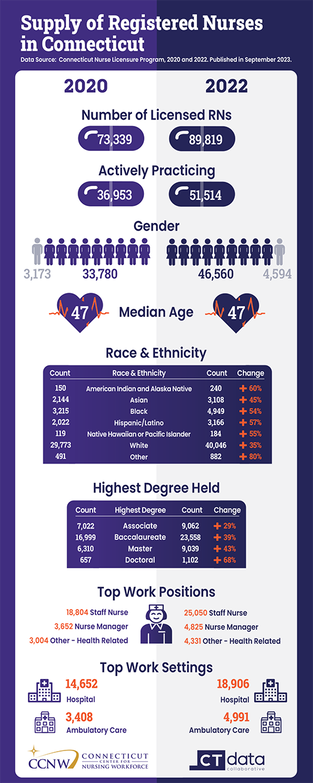 The numbers leave little doubt that attention and systemic actions are required to address the nursing workforce challenges in Connecticut. In 2022, Connecticut reported 89,819 active licenses for Registered Nurses, but only about half that number -45,014- are actively employed in a nursing capacity in Connecticut. This is according to a just-completed analysis by the CTData Collaborative and The CT Center for Nursing Workforce, Inc. in September 2023. Nursing is the single largest job category within the field of healthcare. Licensed nurses provide high-quality, safe, and compassionate care within hospitals, long-term care facilities, homecare settings, and schools, as well as within community-based agencies throughout Connecticut. It is imperative that Connecticut adopt data-driven strategies to inform programming and innovative solutions to support a robust and sustainable nursing workforce to meet the healthcare needs of all Connecticut residents. It is easy to assume that with more than 89,000 licensed Registered Nurses (RNs), Connecticut has more than a sufficient number of RNs to handle the increased need for care due to the aging of the Connecticut population and anything else that comes our way. Yet, we now understand, conclusively, that assumption would be wrong. That is not the only alarm bell ringing. The data indicates that of the working RNs totaling 51,154, the age range comprises five generations from ages 20 to 96, with a median age of 47; and that 46% of the working RNs are 50 years and older. The largest age group of working RNs is between 30-39 at 23% or 11,626; followed by 22% between the ages of 50-59; and most alarming, is that only 11% of the total pool of employed RNs are between the ages of 20-29. Connecticut does not have nearly the number of younger nurses needed to replace those who will be retiring within this decade. The Connecticut Center for Nursing Workforce, Inc. (CCNW) was engaged in numerous state and national activities that took place over the past fiscal year. Due to a strong commitment by the CCNW Board of Directors, Council of Deans & Directors, Healthcare Simulation Network of Connecticut (HSNCT), and Staff & Nurse Consultants; CCNW was able to innovate, coordinate, and impact the nursing workforce in Connecticut and across the country.
 Wednesday, September 27th at 12:00pm ET Free webinar, registration required With the proposal of a historic federal staffing mandate for nursing homes, many are looking at caps on agency staffing to level the playing field for recruiting nurses and aides. However, even if new legislation passes in your state, it won't take effect overnight, nor will it provide a cure-all for the staffing issues plaguing our industry. In fact, introducing rate caps in the midst of a federal staffing mandate may create a whole new set of challenges. In this timely webinar, we will assess the current landscape of rate caps, their potential impact on your facility, and provide actionable strategies for maintaining adequate staffing levels without overpaying agencies. Register for this webinar to learn:
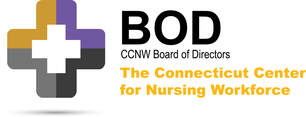 The Connecticut Center for Nursing Workforce, Inc. (CCNW) is so very proud to introduce the Officers and Members of the CCNW Board of Directors for 2023-24. This esteemed group of nursing and healthcare professionals is one of the most diverse boards ever to be assembled representing leaders from academe and practice, medicine, non-profit management and seasoned healthcare stakeholders. The professional accomplishments both individually and collectively will help propel the organization forward by identifying organizational goals which will then inform the creation of a new strategic plan for 2023-25. The nominations process was totally transformed to adopt best-practice Board Policies and Practices led by the previous Board Chair, Dr. Lisa Sundean. The process began with conducting a gap analysis of talents, skills and competencies; identifying healthcare and nursing leaders that could fill these gaps; connecting with individuals to apply for open board positions; conducting interviews with candidates to determine competencies and "fit"; as well as, to secure their commitment and active engagement with the CCNW and its mission that is to foster collaborations to ensure a highly educated, diverse, and sustainable nursing workforce to support the healthcare needs of Connecticut residents. Meet our leadership team! The RN and LPN data were extracted from the 2022 Connecticut Nurse Licensure System Dataset collected by the CT Department of Public Health. The data was collected through the online NurSys Annual Licensing Database using the Minimum Data Set for Nursing Supply, created by the National Forum of State Nursing Workforce Centers. CCNW and CTData are excited to highlight findings from this comprehensive dataset, its implications for Connecticut, and key recommendations to ensure that Connecticut establishes a robust and sustainable nursing workforce. This data story focuses on nurses who are licensed in Connecticut and who are actively working in the state.
Notes about the Minimum Data Set for Nursing Supply data:
CCNW's 43rd Annual RN STUDENT DAY
Register today for the CCNW 43rd Annual RN Student Day to be held on November 7, 2023 at the Aqua Turf Club in Southington, CT. $55 per person. This day was planned especially for YOU! Our full-day event providing breakfast and a sit-down lunch offers RN students the opportunity for professional development and networking to positively position yourself for a successful career in nursing! Registrations can be coordinated in TWO ways:
Workshop - How Burnt-Out Healthcare Leaders Can Reclaim Their Personal Life Without Feeling Guilty9/5/2023 2-hour workshop entitled How Burnt-Out Healthcare Leaders Can Reclaim Their Personal Life Without Feeling Guilty. 2 ANCC continuing education credits. The cost is $97.00 including workbook.
Healthcare leader this is your chance to overcome burnout, advance at work in the face of adversity, and have a thriving personal life. If you’re like most healthcare leaders, we work with you’re a high achiever and a servant leader too. You want to make a positive lasting impact, so you keep pushing through each day and giving more and more attention to your work responsibilities because you don’t want to fail or let anyone down, but you end up sacrificing your personal life and feeling less and less effective every day. |
Categories
All
Archives
June 2024
|
OUR MISSIONTo foster collaborations to ensure a highly educated, diverse, and sustainable nursing workforce to support the healthcare needs of Connecticut residents.
Terms of use Policy | Privacy Policy
Event Policy: No refunds will be given two (2) weeks prior to any event |
LoginContact UsFor more information or questions, please complete the online form to contact Marcia B Proto, M.Ed, CAS via email.
|




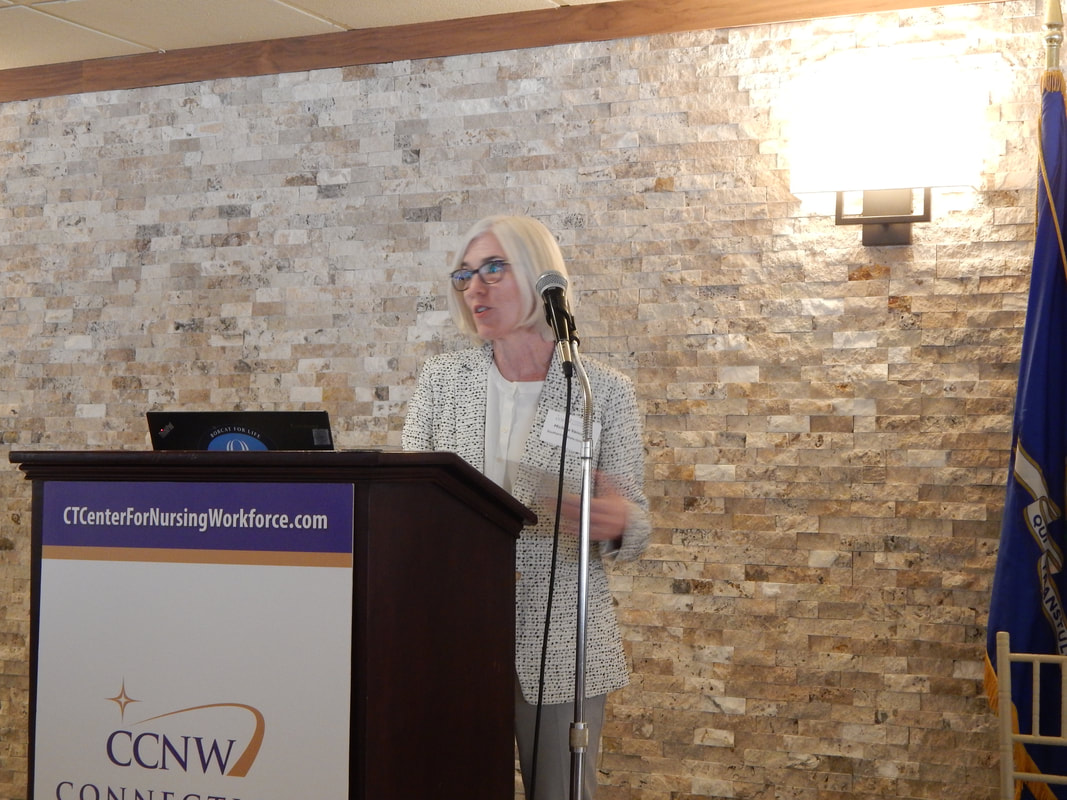
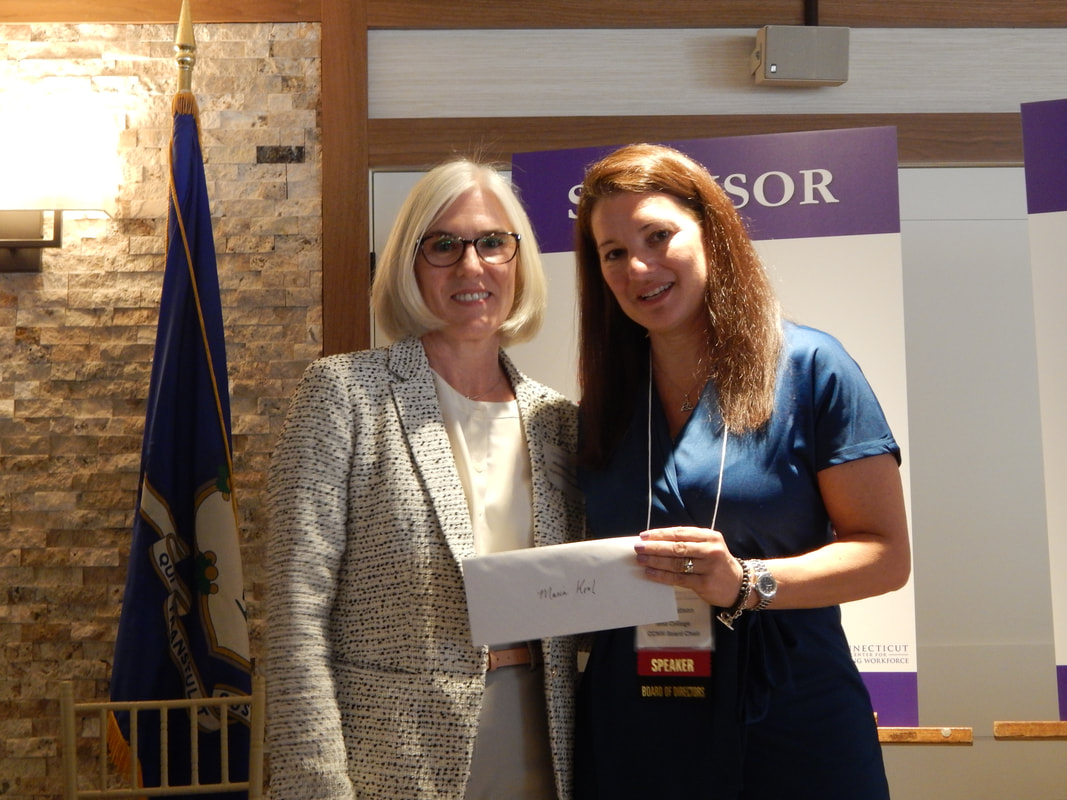


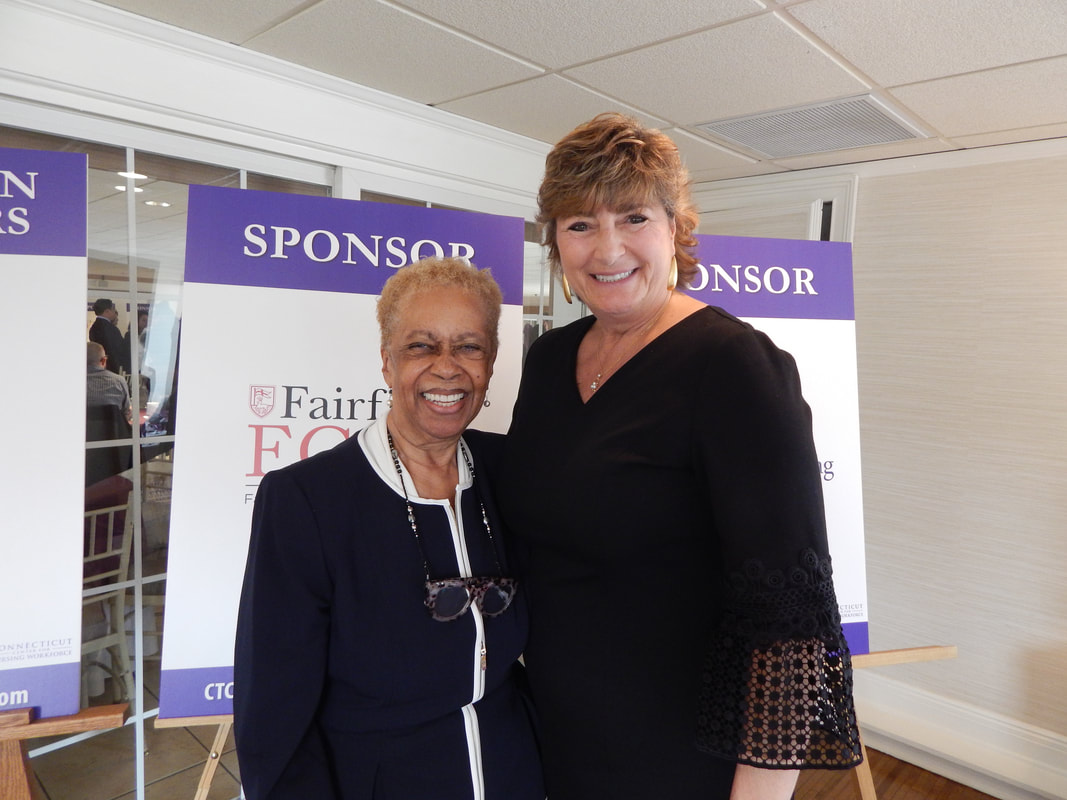

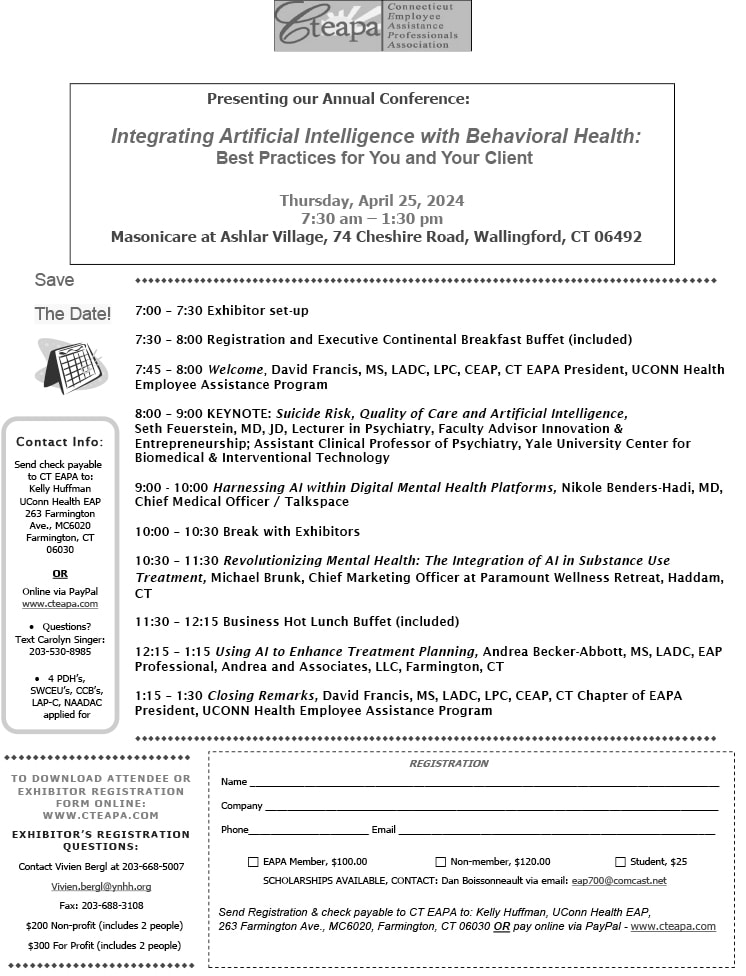


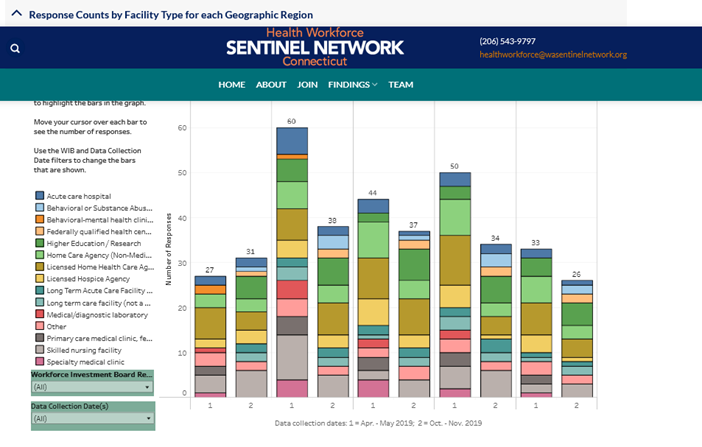
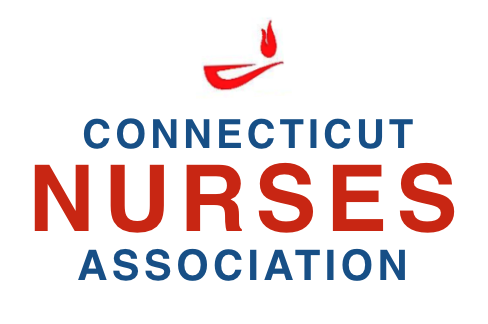
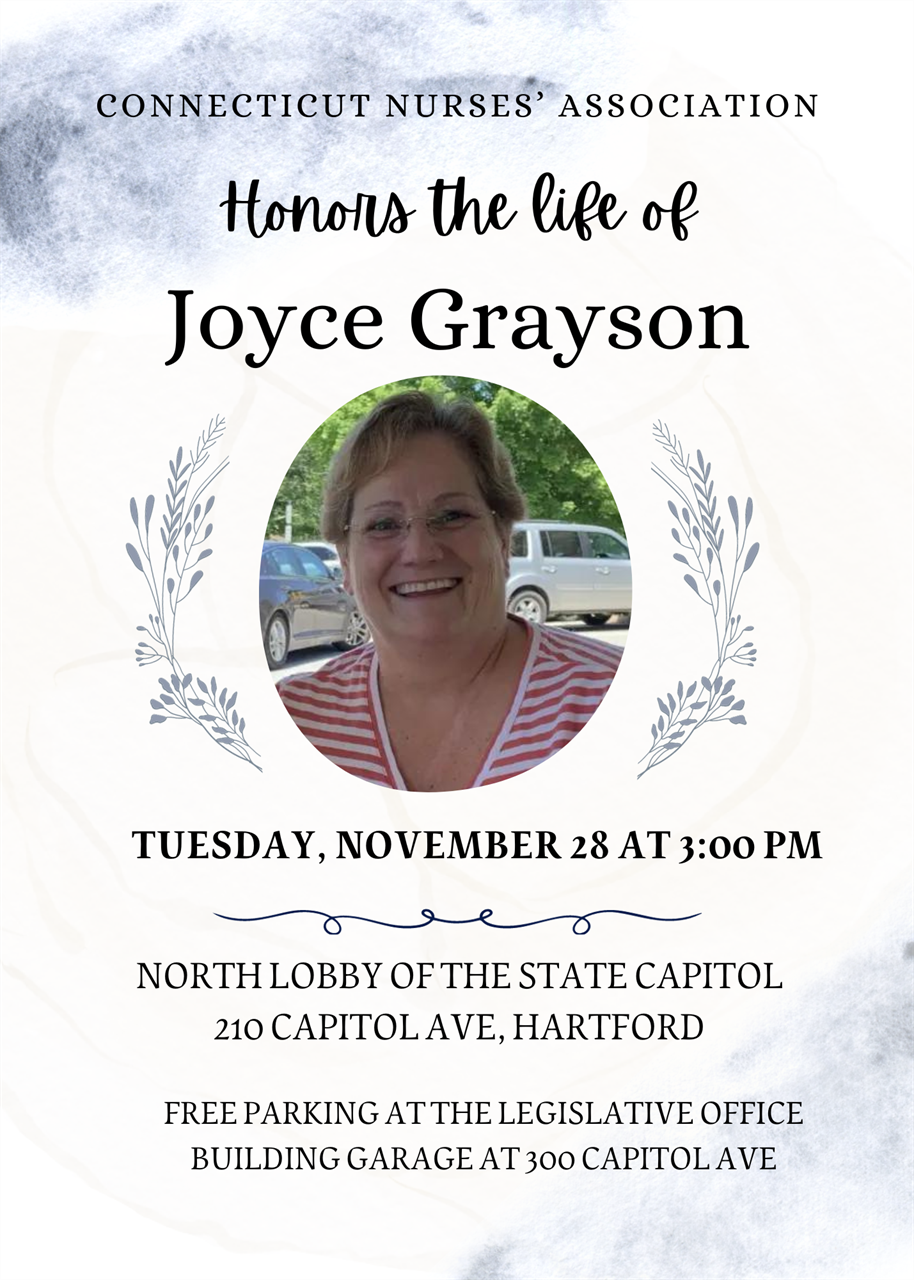

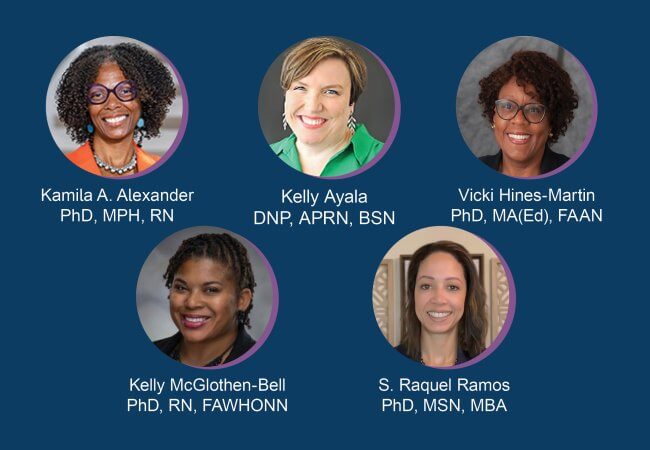


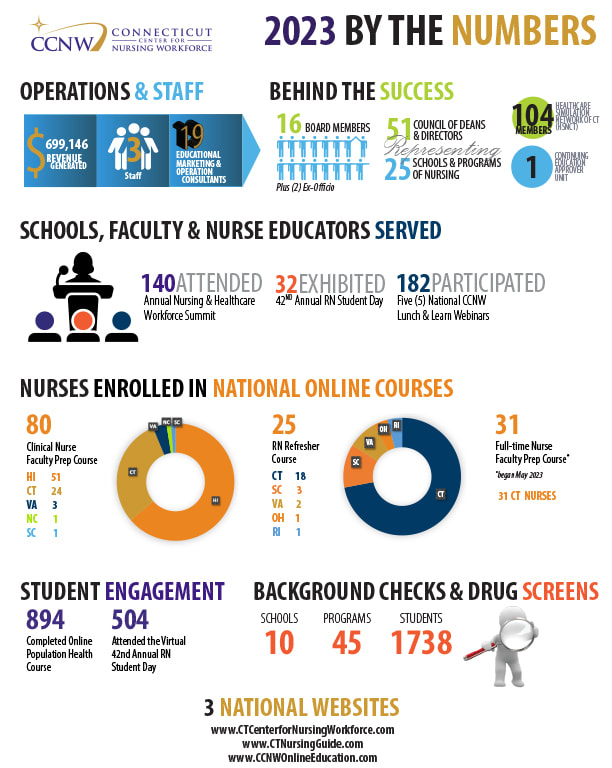
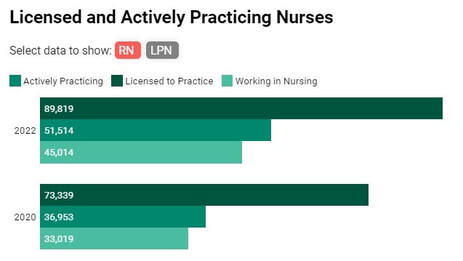


 RSS Feed
RSS Feed










